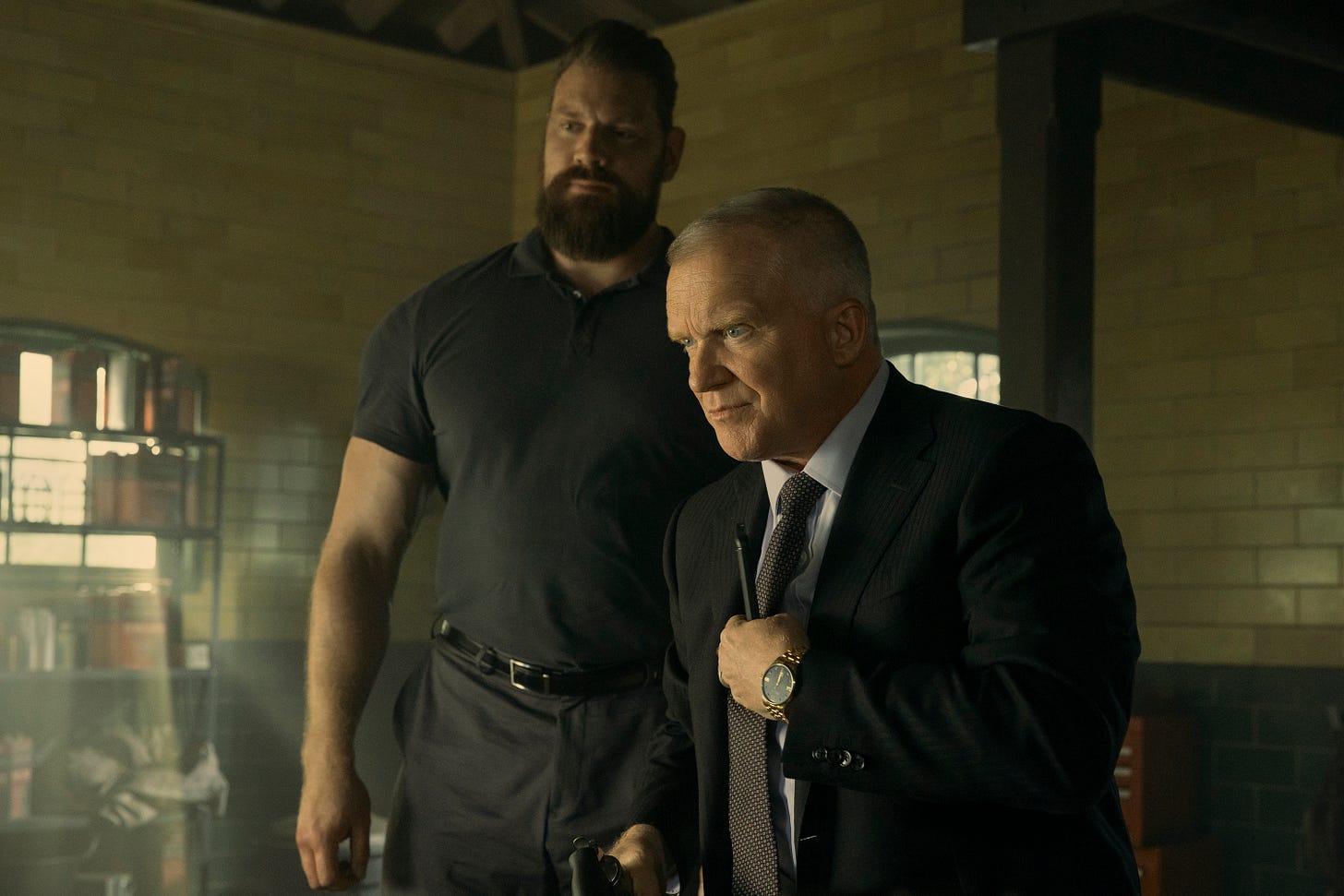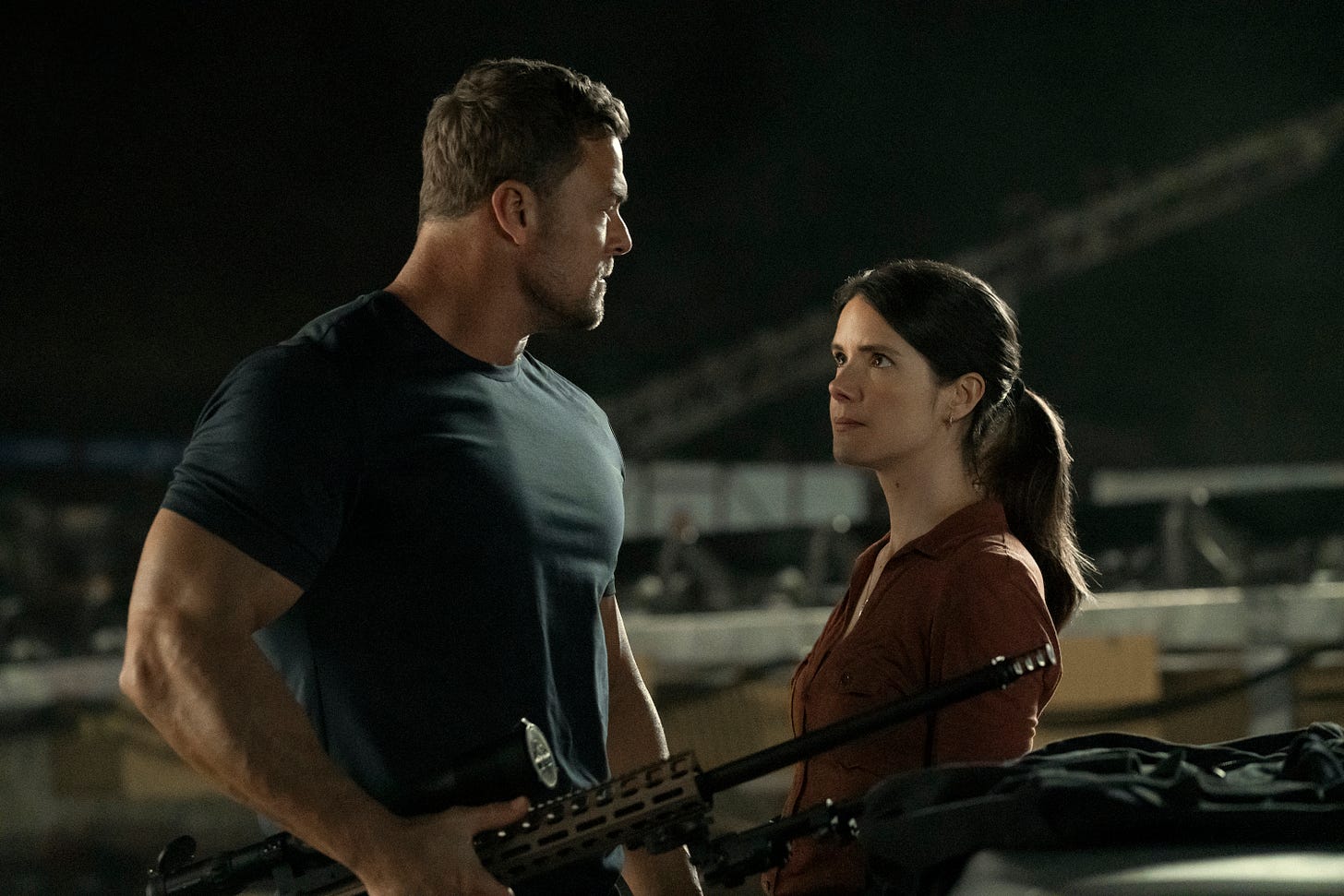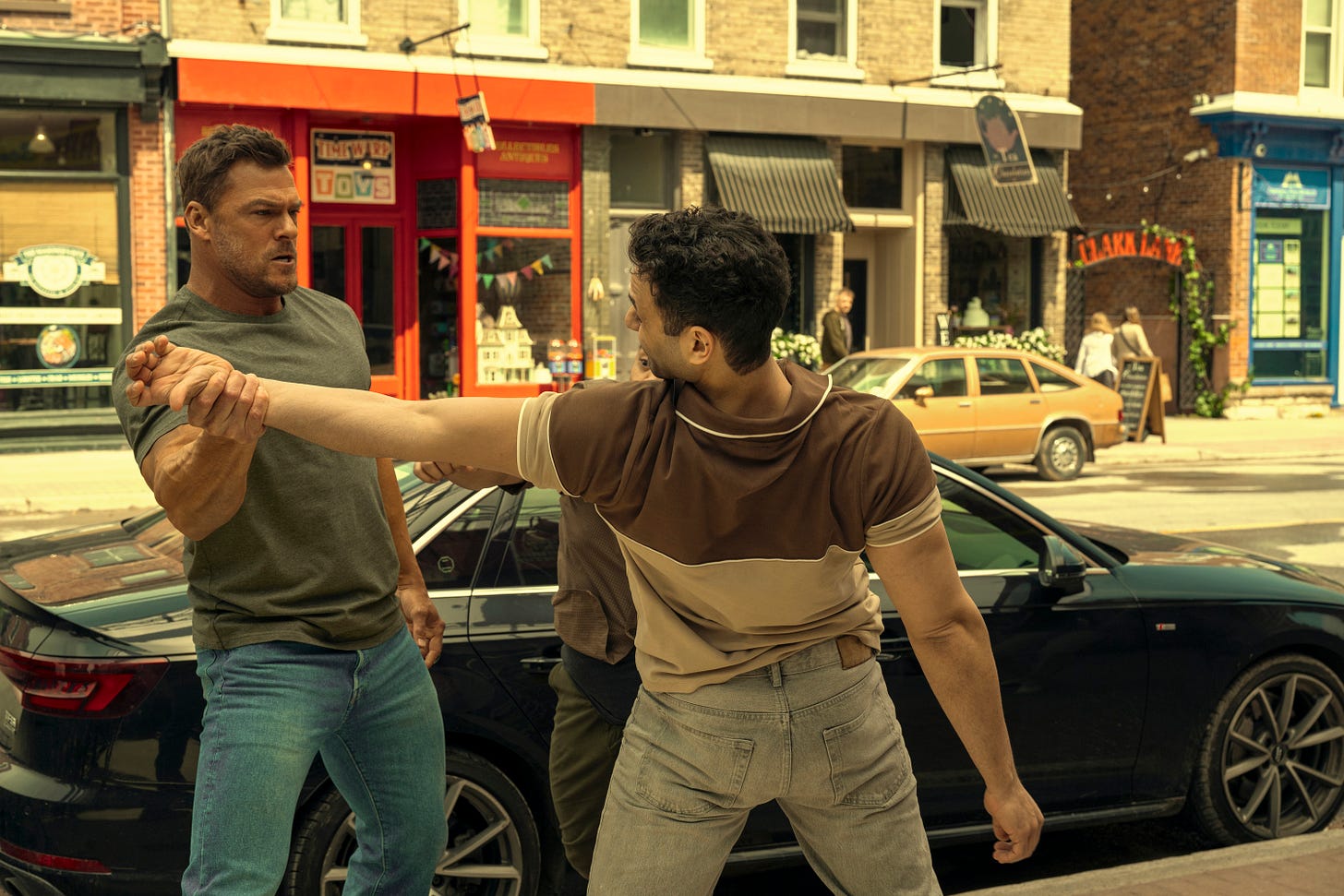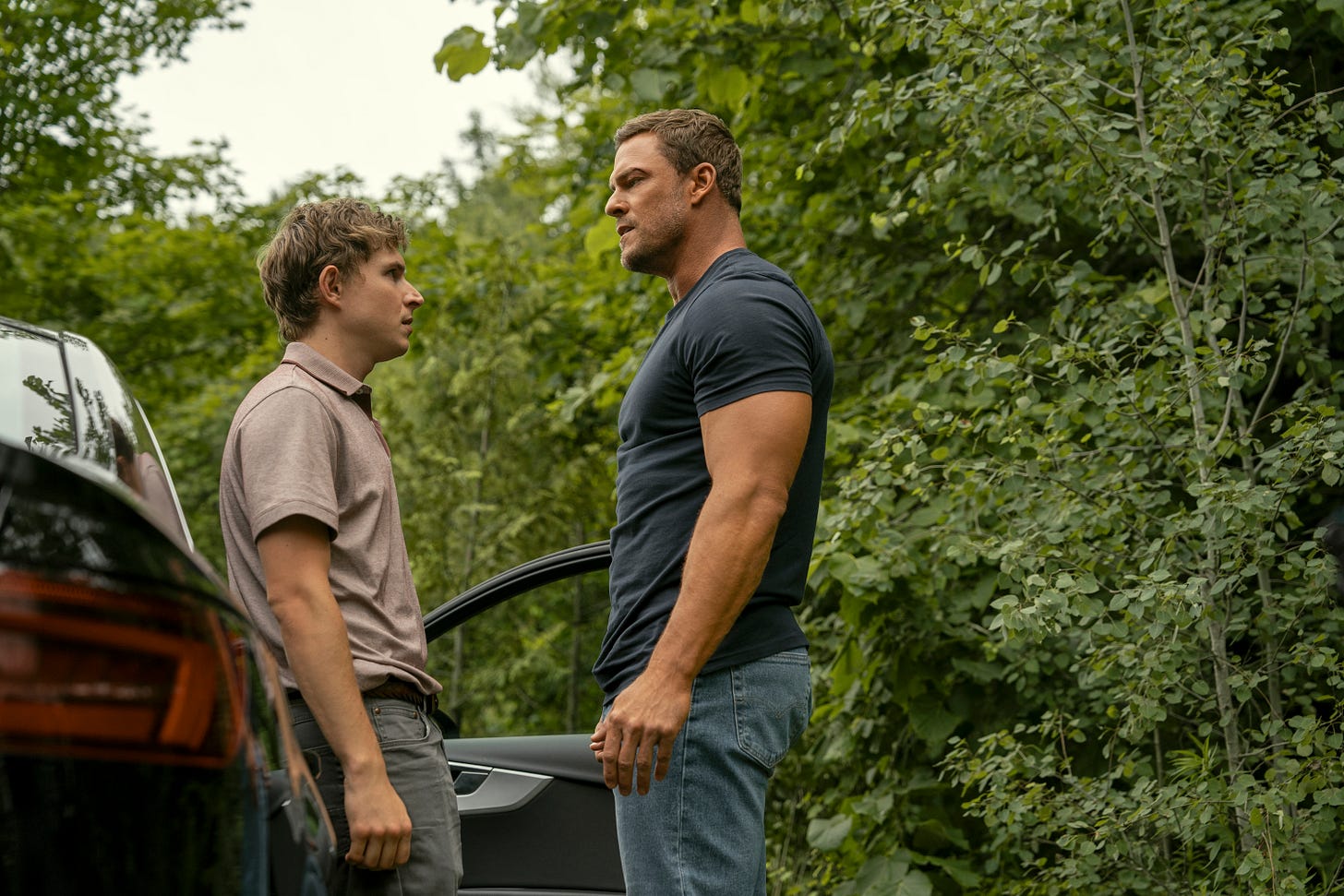Review: 'Reacher' (Season 3)
Jack Reacher goes undercover in a season that’s subtler, more personal, and truer to the books.
Jack Reacher is back where he belongs. Armed with sharp intellect, a dry sense of humor, and—most importantly—an unmatched ability to hit first and without regret, he takes on injustice wherever he happens to cross its path. Grab the popcorn and settle in. This is entertainment done right.
Before we begin, a quick spoiler warning, as this review touches on key plot points from the first four episodes of Reacher Season 3, though nothing major is revealed. If you’d rather go in completely blind, you might want to skip this one.
Season 3 throws us straight into the action, as Reacher (played by Alan Ritchson) rescues a young man from an attempted kidnapping. The target is Richard Beck (Johnny Berchtold), son of Zachary Beck (Anthony Michael Hall), who owns an import business called Bizarre Bazaar.
But things aren’t quite what they seem. The Drug Enforcement Administration (DEA) suspects Bizarre Bazaar is more than just an import business, and Reacher soon finds himself drawn into a tangled web of deception. What appears to be a straightforward abduction turns out to be something far more complex, placing him in a dangerous world where trust is both invaluable and nearly impossible to earn.
The first few episodes feature multiple flashbacks, necessary to explain how the DEA managed to pull Reacher into this operation. After all, he’s not just any investigator. He’s a highly decorated former military police major who, after leaving the service, chooses to live without a fixed job or home, drifting from place to place as he pleases.
In Season 3, righting past wrongs is the driving force for both Jack Reacher and DEA agent Susan Duffy (played by Sonya Cassidy). Duffy feels responsible for an informant she recruited, who has since disappeared while trying to expose Beck. Reacher, on the other hand, unexpectedly spots a figure from his military past—a man he thought he had eliminated for good. And if there’s one thing Reacher can’t stand, it’s unfinished business.
His attempt to confirm what he saw puts him on the DEA’s radar, and Duffy’s team is eager to find out what he knows. Soon enough, she ropes him into her investigation—especially since it looks like their two cases might be connected.
Step one is infiltrating Beck’s operation, and that’s exactly what Reacher is working on when the season begins, positioning himself as the hero who prevents Beck’s son from being kidnapped. But, unsurprisingly, stopping the abduction isn’t enough to gain entry. Trust, at least in criminal circles, has to be earned through more than just one good deed. There are obstacles to overcome, tests to pass—challenges that Reacher handles with a mix of brains, luck, brute force, and firepower.
Of course, not everyone buys into his act. Some are skeptical, questioning the kidnapping story altogether. And people like that need to be dealt with—either by spinning a convincing cover story or by more direct means.

As Reacher works his way into Beck’s inner circle, he spends time with Richard, Beck’s son. Richard is a lonely young man who seems to have spent his life trying to disappear into the background. He’s practically a prisoner in his father’s grand mansion, surrounded by bodyguards and house staff.
Richard is clearly afraid, and Reacher tries to figure out why—both for his own sake and for Duffy’s investigation. And, as expected, things aren’t quite what they seem here either. While Beck may be ruthless, there’s someone even higher up the chain. It turns out Beck and his enforcers aren’t actually at the top—above them is Quinn (played by Brian Tee), the man Reacher had assumed was working for Beck, not the other way around.
Through his interactions with Richard Beck, we also see a different side of Reacher—the protector, the mentor, the man who tries to build up Richard’s self-confidence. This duality is what makes it easier—at least for me—to accept that, along the way, bones will be broken, and lives will be lost in brutal fashion.
It’s also a welcome return to the Jack Reacher that readers of Lee Child’s books know best. While season two was driven by revenge, season three puts justice back at the forefront—though revenge certainly isn’t off the table.
The genre demands its fair share of near-superhuman abilities, but Reacher’s clear sense of care for the people he encounters—especially those who have been wronged—is essential to understanding why he earns the trust of those he helps.
In Jack Reacher’s world, villains are villains, and heroes are heroes. But there’s a fine line between what works and what starts to feel like parody. For the most part, the show stays on the right side of that line—but occasionally, it stumbles.
At times, Ritchson’s portrayal of Reacher feels stiff, his movements a bit too rigid, and his delivery occasionally flat—almost as if he’s reading lines without much engagement. When that happens, some of Reacher’s humanity slips away, and he starts to feel more like a two-dimensional comic book character—something the show could have avoided.
I’m also not entirely convinced by the portrayal of Richard Beck. He’s supposed to be a 20-year-old college student, yet I can’t shake the feeling that I’m watching a 28-year-old actor trying to play a 14-year-old boy. A little less “awkward, lanky young man who is almost comically helpless in his misery, surrounded by people who see him as weak” would have been an improvement.
That said, in the four episodes I’ve seen so far, it’s been easy enough to overlook most of these flaws. There’s action, there’s humor, there are moments where things could go disastrously wrong, and moments that demand both strategy and brute force. This is Jack Reacher back where he belongs.
Overall, I’ve had a great time watching, and I’ll be seriously disappointed if the rest of the season doesn’t live up to this strong start.







